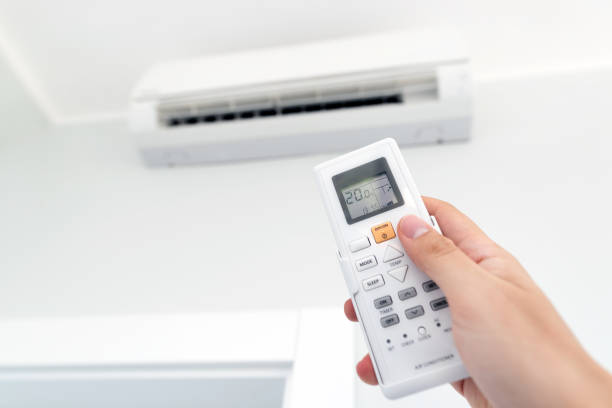In the pursuit of energy efficiency and enhanced user experience, the realm of air conditioning technology has witnessed remarkable advancements. Among these innovations, air conditioners equipped with automatic occupancy detection stand out as game-changers. By intelligently sensing human presence in a room, these systems optimize energy consumption while ensuring optimal comfort levels. This article explores the benefits of such technology, including energy savings and ease of use.
Enhanced Energy Efficiency
Traditional air conditioning systems operate based on preset schedules or manual adjustments, often leading to wasteful energy consumption when rooms are unoccupied. However, air conditioners with automatic occupancy detection utilize sensors, such as infrared or motion detectors, to identify when individuals are present in a room. This real-time detection enables the system to adjust temperature settings accordingly, conserving energy during periods of inactivity.
The energy-saving potential of automatic occupancy detection is significant. Studies have shown that buildings equipped with such technology can achieve energy savings of up to 30% compared to conventional systems. By eliminating the need for constant manual adjustments, these systems optimize energy usage without compromising comfort, making them invaluable in both residential and commercial settings.
Seamless User Experience
In addition to energy savings, air conditioners with automatic occupancy detection offer a seamless and intuitive user experience. Gone are the days of having to remember to adjust thermostat settings or fumble with remote controls. With automatic detection, the system adapts dynamically to occupancy patterns, ensuring optimal comfort without requiring user intervention.
Imagine walking into a room and having the air conditioner automatically adjust to your preferred temperature based on your presence. Whether you’re hosting guests or working from home, the system seamlessly maintains ideal conditions, enhancing overall comfort and convenience. Furthermore, smart integration with mobile devices and home automation platforms allows users to monitor and control their air conditioners remotely, adding another layer of convenience to the experience.
Customized Comfort Settings
Another notable advantage of air conditioners with automatic occupancy detection is their ability to tailor comfort settings to individual preferences. By recognizing specific occupants and their preferences, these systems can adjust temperature, airflow, and other parameters to create personalized comfort zones.
For example, in a multi-room household, each family member may have different temperature preferences. With automatic occupancy detection, the system can adjust settings in each room based on who is present, ensuring that everyone enjoys their preferred level of comfort. This level of customization not only enhances comfort but also promotes harmony within the household by accommodating diverse preferences.
Adaptability to Changing Conditions
Beyond simply detecting occupancy, advanced air conditioning systems with occupancy detection can also adapt to changing environmental conditions. For instance, during periods of intense sunlight or high outdoor temperatures, the system can anticipate the need for increased cooling capacity and adjust settings accordingly.
Similarly, if occupancy patterns change throughout the day, such as during peak hours or after-hours, the system can intelligently optimize its operation to maximize energy savings without compromising comfort. This adaptability ensures that the air conditioning system remains efficient and responsive to real-time conditions, providing users with peace of mind and consistent comfort throughout the day.
Environmental Sustainability
The environmental benefits of air conditioners with automatic occupancy detection extend beyond energy savings. By reducing energy consumption and greenhouse gas emissions, these systems contribute to environmental sustainability and help combat climate change.
According to the U.S. Environmental Protection Agency (EPA), heating and cooling account for nearly half of the energy use in residential buildings. By implementing energy-efficient technologies like automatic occupancy detection, households and businesses can significantly reduce their carbon footprint while enjoying the benefits of enhanced comfort and convenience.
Air conditioners with automatic occupancy detection represent a significant advancement in the field of HVAC technology, offering a compelling combination of energy savings, ease of use, and personalized comfort. By intelligently sensing human presence and adapting to changing conditions, these systems optimize energy usage while ensuring optimal comfort levels for occupants.
As society continues to prioritize sustainability and efficiency, the adoption of such innovative technologies is poised to become increasingly widespread. Whether in homes, offices, or commercial buildings, air conditioners with automatic occupancy detection are revolutionizing the way we cool our spaces, paving the way for a more comfortable, efficient, and environmentally conscious future.
Don’t postpone the repair of your air conditioner. Remember, fixing the issue is both easier and more cost-effective immediately after a breakdown. If your air conditioner is operational but producing odd noises or not effectively cooling the room, it’s time to reach out to technicians.
Avoid waiting until the air conditioner completely breaks down. Delayed repairs increase the likelihood of requiring extensive and complicated fixes. Enduring a few days without air conditioning during the summer heat in San Diego County, CA can cause significant discomfort for the entire family. By contacting the experts at SDAC Heating & Air Conditioning, you can prevent this problem.
Contact us:
